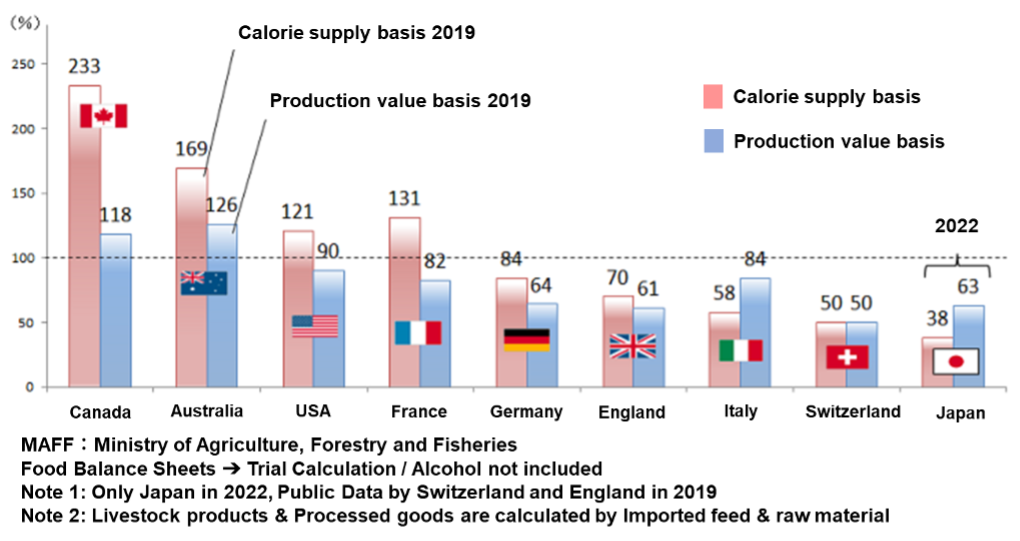With an increasing number of countries becoming reluctant to sell to Japan, the past principle of relying on imports for food, fertilizer, and raw materials is turning into a major vulnerability in terms of national security, including the risk of war. While defense is crucial to Japan's safety, securing a stable food supply is an even more pressing issue. Currently, Japan's cutting-edge technology is advancing and realizing nuclear fusion reactors and carbon-neutral hydrogen engine vehicles, contributing to fields where Japan is expected to excel on the global stage.
We have so many weak points to be improved quickly. Japan has No.2 position of 11.4 kg/ha in pesticide use after CHINA No.1, 13kg/ha. Japan has been keeping No.1 position in food additive use in the world. As you know, we have an issue of food self-sufficiency rate, too. In the past years it is not improved at all in spite of so many discussions over decades.
Japanese government has been allocating subsidies to help livestock farmer and grain farmer not to produce the exceeding products into the market for cost-effective imported goods. Some analysts say, “The subsidies budget purpose makes them go out the markets. It can be still questionable for Japanese.” (Is there a serious problem for Japan under food insecurity? Russia continues still the war against Ukraine but they kept 132% of food self-sufficiency rate not like Japan.
By the way Ukraine had 440% of food self-sufficiency rate before the war. War specialists say, “Any nation cannot survive severe wars for medium-to-long-range. Of course, one idea makes Japan never jump in wars by keeping super low food self-sufficiency rate like today. When we face catastrophe, great depression or big climate changes, the surviving ratio of Japanese can be extreamly low. We should consider the nation/society weak points but only protection of ourselves.
Food self-sufficiency in Japan and the world(MAFF 2019)
